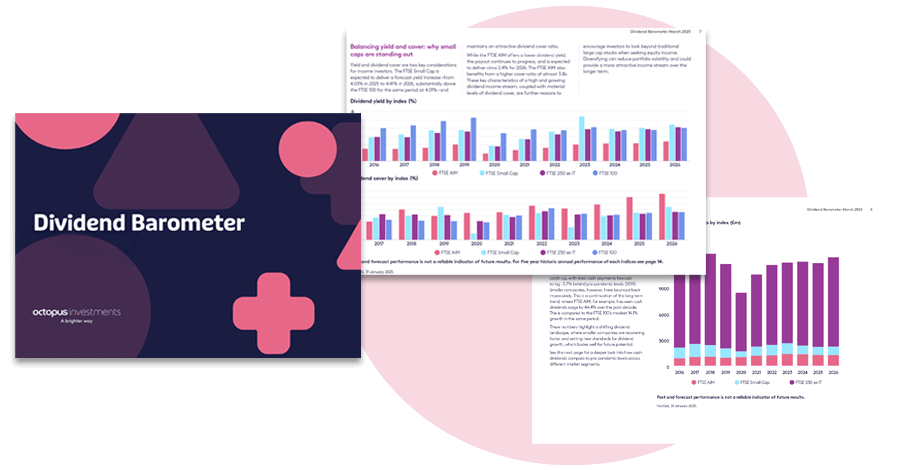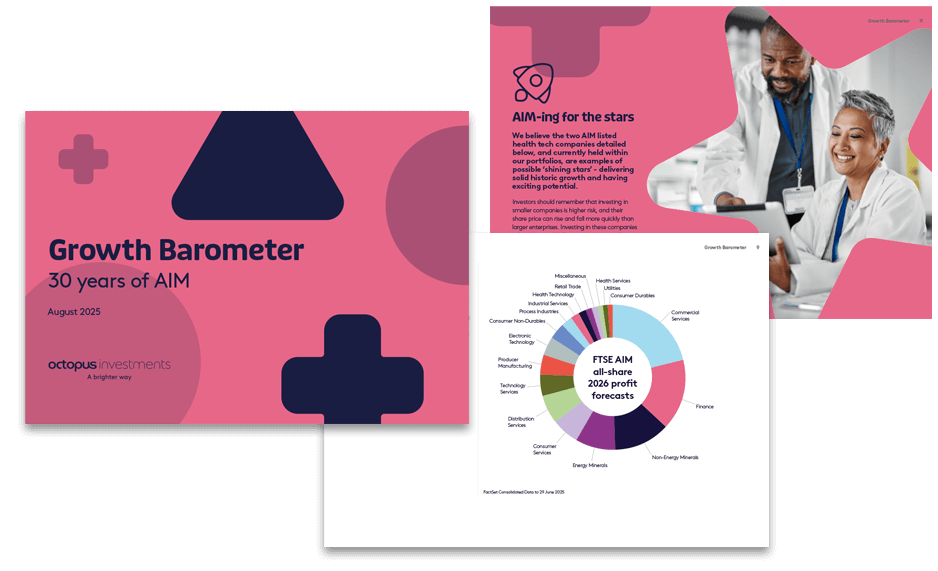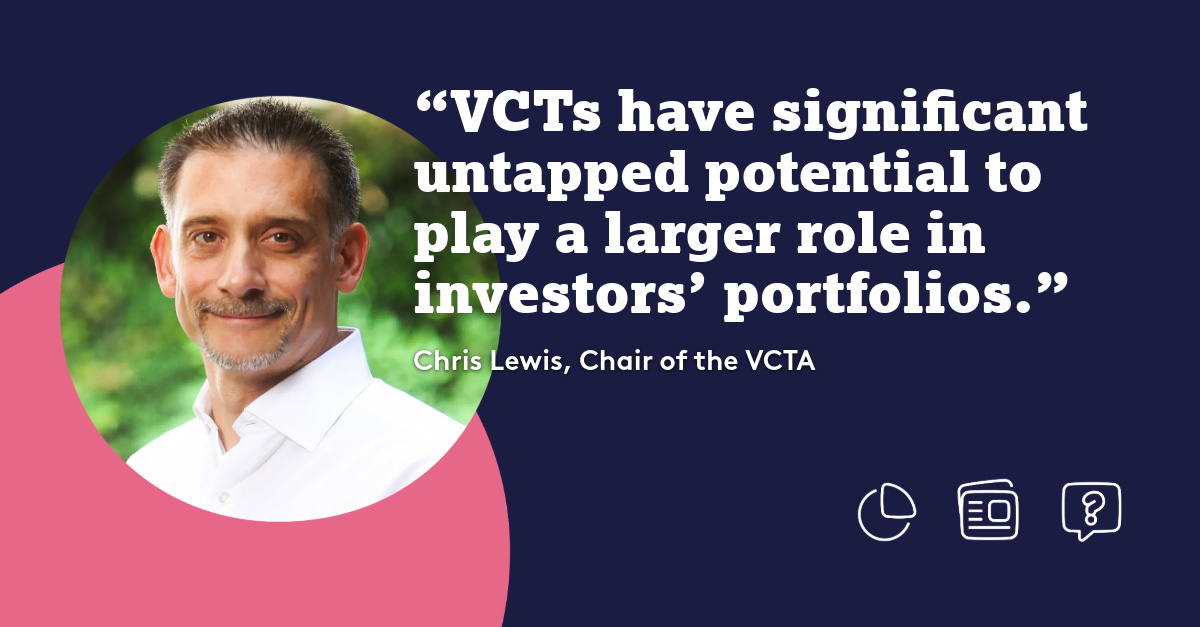Venture Capital Trusts (VCTs) have long been considered a niche tool typically reserved for high net worths and wheeled out at tax year end. But that perception is dramatically shifting.
As VCTs celebrate their 30th anniversary, we spoke to Chris Lewis, Chair of the Venture Capital Trust Association (VCTA), about how far the scheme has come and why now is the time for advisers to take a closer look.
“VCTs have significant untapped potential to play a larger role in investors’ portfolios,” Chris explains. “Over the past decade, tax-efficient investment options have become increasingly limited, with many traditional schemes scaling back or becoming harder to access. For high earners in particular, pension and ISA contribution limits are quickly reached, leaving few remaining routes with meaningful alternatives for tax planning.”
In this context, VCTs have emerged as one of the last substantial “islands” of tax efficiency. For higher-income clients, VCTs can offer a compelling opportunity, especially as government policy continues to support these investments. Noting the success of the scheme, Chris adds, “I believe VCTs are the envy of Europe, and other countries, in terms of how they create a public-private partnership and the scale they’ve achieved. They remain a uniquely powerful tool in the UK’s early-stage venture ecosystem.”
The value of VCTs
VCTs provide investors with access to early-stage UK businesses alongside attractive tax incentives. These include up to 30% income tax relief, tax-free dividends, and exemption from capital gains tax on investments of up to £200,000 per tax year. For clients who understand and accept the higher risk profile, VCTs can serve as a strategic component within a diversified portfolio of assets, offering the potential for substantial returns on venture investments while delivering meaningful tax efficiencies.
A shift in perception
So, how have VCTs evolved over the past 30 years since inception?
“Two big changes stand out,” Chris explains. “First, the rules used to allow asset-backed investments. Now, the focus is on higher risk, higher return opportunities – sectors like deep tech, AI, pharma, and biotech. These are the kind of investments where there is potential for meaningful growth and are central to the government’s quest for investment and innovation.”
“Second, when VCTs were first launched, they used to be presented to clients approaching retirement, typically those at the peak of their earnings who wanted to reduce their income tax and build a tax-free income stream alongside their pension. But this has changed. The investor profile has broadened significantly, with a notable shift towards younger clients”. Data from Octopus Investments, for example, shows that the average age of its VCT investors fell from 63 in 2018/19 to 54 in 2023/2024.
This shift challenges the common misconception that VCTs are only for older, high net worth clients. With minimum investments starting from £3,000, VCTs are accessible to a broad range of clients. Once they become familiar with VCTs, many advisers regularly incorporate them into their clients’ annual tax planning.
For advisers and their clients, this creates a valuable opportunity. While individual case sizes may be modest, the cumulative impact can be significant.
Overcoming past hesitation
While some advisers have historically been cautious about recommending VCTs – largely due to the inherent risks of investing in early-stage companies and a challenging economic environment in recent years – this sentiment is evolving.
“The last five years have held some challenges for venture capital across the world, including for VCTs in the UK. There have been businesses that have not survived,” acknowledges Chris. “But many of the businesses in VCT portfolios have continued to grow steadily despite the headwinds. Now, with improving conditions, there’s real potential for the momentum to accelerate. However, venture capital in general, including VCTs, remains a long-term asset allocation decision and it can take ten years or more to build a meaningful business that is ready for scale. It is crucial to build a diversified portfolio and spread investment risk across multiple holdings. I always recommend selecting at least two VCTs at each investment decision as this can allow investors to spread their money over 100 portfolio companies.”
A timely opportunity
We recently spoke with Ewoud Karelse, Senior Analyst at Evelyn Partners, who highlighted the unique environment shaping VCT investing today:
“The current landscape is creating one of the most compelling backdrops for VCT investing in years. Frozen thresholds and rising tax burdens are pushing more clients into higher tax bands. Coincidentally, a growing number of individuals are falling into the so-called 60% “tax trap”, where the combination of additional rate tax and the tapered personal allowance results in an effective marginal rate of 60%. And with pensions set to be included in estates from 2027, advisers need to think well beyond traditional wrappers.”
At the same time, the government’s recent extension of the VCT sunset clause to 2035, along with the inclusion of VCTs in the Spring Statement, signals long-term policy support and reinforces the scheme’s vital role in the UK’s investment landscape. Combined with a 30-year track record of promoting growth and tax efficiency, VCTs are no longer a fringe solution – they’re a maturing, reliable part of sound financial planning.
As Ewoud also points out: “VCTs are no longer just a tax-year-end tactic – they’re a year-round, forward-looking strategy and a valuable part of the adviser toolkit. As client needs evolve, advisers have an opportunity to use VCTs more proactively in long-term planning.”
Understanding the risks of investing in a VCT
- The value of a VCT investment, and any income from it, can fall as well as rise. Investors may not get back the full amount they invest.
- Tax treatment depends on individual circumstances and may change in the future.
- Tax relief depends on the VCT maintaining its VCT-qualifying status.
- VCT shares are by their nature high risk, their share price may be volatile and they may be hard to sell.
New to VCTs? Join the Octopus Investments VCT Academy
The VCT Academy is an exclusive, CPD-qualifying series packed with videos, guides, and investor-friendly resources designed specifically to help advisers who haven’t yet written VCT business get started – and confidently write their first case.
Unlock access to these essential resources.










